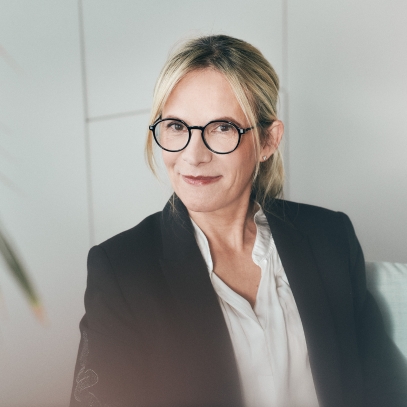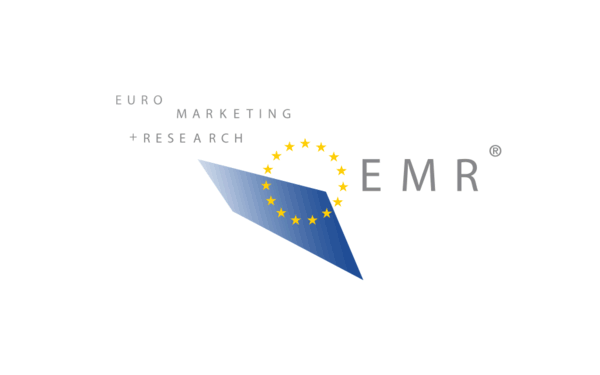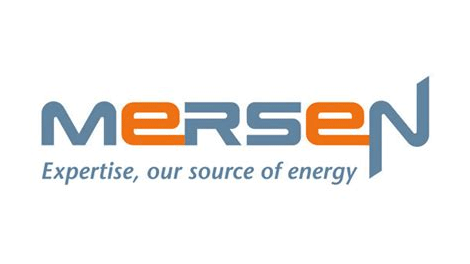Mersen: Changes to the Board of Directors
Paris, January 8, 2024 – Mersen (Euronext FR0000039620 – MRN), a global expert in electrical power and advanced materials, has announced changes to its Board of Directors.
Magali Joëssel, permanent representative of Bpifrance Investissement on Mersen’s Board of Directors since May 2018, has asked to be relieved of these duties in order to focus on other mandates related to the investment fund she manages. She is stepping down from the Board and is replaced by Carolle Foissaud, who becomes the permanent representative of Bpifrance Investissement and is thus resigning as an independent director of Mersen.
To replace Carolle Foissaud as an independent director, the Board of Directors has co-opted Jocelyne Vassoille, currently Vice-President, Human Resources and member of the Executive Committee of Vinci. Jocelyne Vassoille will bring to the Board her extensive experience in human resources management for major international groups, as well as in governance and CSR issues. In accordance with the corporate governance principles and best practices set out in the AFEP-MEDEF Corporate Governance Code for listed companies and in the Internal Rules of Mersen’s Board of Directors, Jocelyne Vassoille is considered to be independent. Her appointment is subject to ratification by the next Annual General Meeting.
Since December 2021, Magali Joëssel has also been responsible for CSR issues on the Board of Directors. She is replaced in this role by Emmanuel Blot, permanent representative of Bpifrance Participations. Emmanuel Blot will bring to this role the expertise in multi-criteria environmental and socio-economic analysis he has developed working on investment projects.
The Governance, Appointments and Remuneration Committee is now chaired by Jocelyne Vassoille, who replaces Carolle Foissaud. Carolle Foissaud remains a member of this Committee, replacing Emmanuel Blot, who in turn joins the Audit and Accounts Committee.
The Audit and Accounts Committee, still chaired by Denis Thiery, welcomes Emmanuel Blot to replace Magali Joëssel. Emmanuel Blot has acquired extensive financial expertise in his role at Bpifrance. To replace Carolle Foissaud, the Committee also welcomes Emmanuelle Picard, who brings to the Committee her general management experience with the Ahlstrom, Saint-Gobain and Imerys groups
The new composition of the Board and its Committees is presented at the end of this press release. It takes into consideration the independence and expertise of its members.
Olivier Legrain, Chairman of Mersen’s Board of Directors, said: “I would like to extend my warmest thanks to Magali Joëssel for her significant contribution to the work of the Board and the Audit and Accounts Committee, as well as for her role on CSR issues. Our strong ties with the Group’s largest shareholder, Bpifrance, will remain, thanks to the presence on the Board of Carolle Foissaud and Emmanuel Blot. I am delighted to welcome Jocelyne Vassoille to our Board. Her commitment to excellence will be a key asset to effectively execute the Group’s medium-term plan.”
BIOGRAPHY

Jocelyne Vassoille is 58 years old. She began her career in aeronautics and HR consulting before joining the Danone group, where she held HR positions both in and outside France.
She then joined LVMH as Director of Human Resources in charge of Group Talent and Acquisition, as well as the Selective Distribution, Perfumes and Cosmetics divisions, before being appointed Director of Human Resources at Parfums Christian Dior.
She was then appointed Director of Human Resources, CSR and Communications at Vivarte.
She was Director of Human Resources of L’Oréal’s Research & Innovation division before being appointed Vice‑President, Human Resources and a member of the Executive Committee of the Vinci group.
COMPOSITION OF THE BOARD AND COMMITTEES AFTER THESE CHANGES:

SourceMersen
EMR Analysis
More information on Mersen: See the full profile on EMR Executive Services
More information on Olivier Legrain (Independent Director, Chairman of the Board of Directors & Member of the Governance, Appointments and Remuneration Committee, Mersen): See the full profile on EMR Executive Services
More information on Carolle Foissaud (Member of the Board of Directors & Member of the Governance, Appointments and Remuneration Committee & Permanent Representative of Bpifrance Investissement, Mersen): See the full profile on EMR Executive Services
More information on Jocelyne Vassoille (Independent Director, Member of the Board of Directors & Chair of the Governance, Appointments and Remuneration Committee, Mersen – Co-optation subject to ratification by the next Annual General Meeting in May 2024): See the full profile on EMR Executive Services
More information on Emmanuel Blot (Member of the Board of Directors Responsible for CSR & Member of the Audit and Accounts Committee & Permanent Representative of Bpifrance Participations, Mersen): See the full profile on EMR Executive Services
More information on Denis Thiery (Independent Director, Member of the Board of Directors & Chair of the Audit and Accounts Committee & Member of the Governance, Appointments and Remuneration Committee, Mersen): See the full profile on EMR Executive Services
More information on Emmanuelle Picard (Independent Director, Member of the Board of Directors & Member of the Audit and Accounts Committee, Mersen): See the full profile on EMR Executive Services
More information on Michel Crochon (Independent Director, Member of the Board of Directors & Member of the Audit and Accounts Committee, Mersen): See the full profile on EMR Executive Services
More information on Pierre Creusy (Employee Representative, Member of the Board of Directors & Member of the Governance, Appointments and Remuneration Committee, Mersen): See the full profile on EMR Executive Services
More information on Luc Themelin (Chief Executive Officer, Mersen): See the full profile on EMR Executive Services
More information on Bpifrance: https://www.bpifrance.com/ + Bpifrance, the one-stop shop for entrepreneurs!
Bpifrance, a public investment bank, supports companies, from start-up to stock market listing, from credit to equity. A privileged contact, Bpifrance offers financing or investment solutions in each region adapted to each stage of the life of companies. As a partner bank for entrepreneurs, Bpifrance supports them over the long term to support their growth and competitiveness. The teams are at the heart of the regions, throughout the territory, through more than 50 regional locations.
Officially Bpifrance was created in 2013 but its roots go back a hundred years. It is the culmination of a number of entities created and merged over the subsequent years. Today, we are the trusted partner for entrepreneurs and offer a continuum of solutions adapted to every key step in a business’ growth.
- € 17,32 Bn direct funding
- € 8,2 Bn of guaranteed bank loans
- € 4,47 Bn of investment
Bpifrance’s goal is to favour the growth of the French economy by helping entrepreneurs thrive. We are the trusted partner of entrepreneurs and champion the interests of those who are visionaries; those who dare to take risks in order to take their businesses further. We have many resources at our disposal to help entrepreneurs, the champions of the 21st century, succeed. We mainly support micro-businesses, SMEs and mid-caps but we also accompany large caps that are considered important to the interests of France in terms of national economy, the territories or employment. We offer a continuum of solutions adapted to every key step in a business’ growth such as: business creation, financing, guarantees or equity investment.
We are also the French agency for innovation, delivering massive programs to innovative entrepreneurs. To put it simply: Bpifrance is a financial institution, with private culture, serving the collective interest. Our values are determination / optimism / proximity / simplicity and also performance: we generate significant returns to our shareholders.
More information on Nicolas Dufourcq (Chief Executive Officer, Bpifrance): https://www.bpifrance.fr/nous-decouvrir/direction-generale/nicolas-dufourcq + https://www.linkedin.com/in/nicolasdufourcq/
More information on VINCI: https://www.vinci.com/ + VINCI is a world leader in concessions, energy and construction, active in more than 120 countries. Our ambition, in response to the climate emergency, is to accelerate the transformation of living environments, infrastructure and mobility.
We also aim to foster social progress by being a humanist group that exemplifies inclusion and solidarity. Powered by our economic performance and the engagement of our 272,000 employees, we forge a more sustainable world and fully embrace our role as a private sector partner working in the public interest.
Revenue (2022): € 61,675M (Concessions: € 9,162M + Energy: € 22,269M + Construction: € 29,252M)
More information on Xavier Huillard (Chairman and Chief Executive Officer, VINCI): https://www.vinci.com/vinci.nsf/en/management-team.htm
More information on the AFEP-MEDEF Corporate Governance Code: https://afep.com/en/publications-en/le-code-afep-medef-revise-de-2018/ + Since 1995, AFEP and MEDEF have developed governance standards, to help listed companies improve their operations and management in full transparency, thus meeting the expectations of investors and the public. Revisions of the Code that have given rise to consultation between the various stakeholders, in particular the public authorities, shareholder associations, investors, proxy advisers, etc., have been published on a dedicated website since 2016. The latest revision of the Code took place in June 2018. This set of recommendations, which constitutes the AFEP-MEDEF Code, may be designated by listed corporations as their reference code pursuant to Articles L.225-37 and L.22568 of the French Commercial Code. The Code, which has been adopted by nearly all the companies listed on the SBF 120, contains a set of demanding and precise recommendations on corporate governance, in particular on the remuneration of executive and non-executive officers.
Set up in 2013, the High Committee on corporate governance diligently monitors application of the Code’s recommendations and assists companies in doing so through its regularly updated application guide.
Concerted professional regulation is a system that is carefully applied in practice and that has shown its value. The Code plays a crucial role in the development of good governance practices, providing a frame of reference to improve the governance of listed companies and disseminate best practices.
These recommendations are intended for companies whose shares are admitted for trading on a regulated market. It is also both desirable and recommended that other companies apply these recommendations either in whole or in part, adapting them to their specific circumstances.
More information on Ahlstrom: https://www.ahlstrom.com/ + Ahlstrom is the global leader in fiber-based specialty materials. Our purpose is to Purify and Protect with Every Fiber, for a Sustainable World. Our vision is to be the Preferred Sustainable Specialty Materials Company for all our stakeholders. We serve five growing and distinctive end markets, also forming the basis for our five divisions: Filtration, Food & Consumer Packaging, Healthcare, Building Materials and Technical Materials. We add value by combining fibers with our advanced technology and innovative and entrepreneurial culture, constantly exploring novel materials and new applications. Sustainability, innovation and quality are central in all our solutions such as compostable food and beverage processing and packaging materials, liquid and air filtration media, diagnostic materials and protective medical fabrics.
- Pro Forma Net Sales in 2022: € 3.3bn
- Employees: 7,000
- Plants: 37 in 13 countries
- Customers: 5,000+ in over 100 countries
More information on Helen Mets (President and Chief Executive Officer, Ahlstrom): https://www.ahlstrom.com/Investors/Governance/executive-management/ + https://www.linkedin.com/in/helenmets/
More information on Saint-Gobain: https://www.saint-gobain.com/en + Our vision is to become the worldwide leader in light and sustainable construction.
Saint-Gobain designs, manufactures and distributes materials and services for the construction and industrial markets.
Its integrated solutions for the renovation of public and private buildings, light construction and the decarbonization of construction and industry are developed through a continuous innovation process and provide sustainability and performance.
The Group’s commitment is guided by its purpose, “MAKING THE WORLD A BETTER HOME”.
- Sales figures: 51.2 billion euros in turnover in 2022
- Headcount: 168,000 employees
- International presence: Saint-Gobain is present in 75 countries
- Net Zero Carbon: Committed to achieving Carbon Neutrality by 2050
More information on Benoît Bazin (Chief Executive Officer, Saint-Gobain): https://www.saint-gobain.com/en/group/corporate-governance/executive-committe + https://www.linkedin.com/in/benoit-bazin-60723b119/
More information on Imerys: https://www.imerys.com/ + We lead the way in mineral-based specialty solutions for industry globally. Imerys supports a diverse range of sectors, from construction and automotive to consumer goods. We provide renowned expert solutions based on processing and refining our mineral resources, synthetic minerals and formulations.
As the world’s leading supplier of speciality minerals for industry, Imerys is organized around two segments, Performance Minerals and High-Temperature Materials & Solutions, grouping four business areas aligned to our customers in core markets.
- Revenue: 4.3 billion euros in turnover in 2022
- Employees: 14,000
- Presence: 40 Countries
More information on Alessandro Dazza (Chief Executive Officer, Imerys): https://www.imerys.com/imerys-group/governance + https://www.linkedin.com/in/alessandro-dazza-890817172/
EMR Additional Notes:
- ESG (Environmental, Social and Governance):
- Refers to the three key factors when measuring the sustainability and ethical impact of an investment in a business or company. Most socially responsible investors check companies out using ESG criteria to screen investments.
- ESG metrics are not commonly part of mandatory financial reporting, though companies are increasingly making disclosures in their annual report or in a standalone sustainability report.
- There is not a standardized approach to the calculation or presentation of different ESG metrics.
- Environmental: Conservation of the natural world
- Climate change and carbon emissions
- Air and water pollution
- Biodiversity
- Deforestation
- Energy efficiency
- Waste management
- Water scarcity
- …
- Social: Consideration of people & relationships
- Customer satisfaction
- Data protection and privacy
- Gender and diversity
- Employee engagement
- Community relations
- Human rights
- Labor standards
- …
- Governance: Standards for running a company
- Board composition
- Audit committee structure
- Bribery and corruption
- Executive compensation
- Lobbying
- Political contributions
- Whistleblower schemes
- …
- Environmental: Conservation of the natural world
- Criteria are of increasing interest to companies, their investors and other stakeholders. With growing concern about he ethical status of quoted companies, these standards are the central factors that measure the ethical impact and sustainability of investment in a company.
- Consequently, ESG analysis considers how companies serve society and how this impacts their current and future performance.
- CSR (Corporate Social Responsability):
- Framework or business model that helps a company be socially accountable to itself, its stakeholders, and the public.
- The purpose of CSR is to give back to the community, take part in philanthropic causes, and provide positive social value. Businesses are increasingly turning to CSR to make a difference and build a positive brand around their company.
- CSR tends to target opinion formers – politicians, pressure groups, media. Sustainability targets the whole value chain – from suppliers to operations to partners to end-consumers.
- CSR vs. ESG:
- CSR is a company’s framework of sustainability plans and responsible cultural influence, whereas ESG is the assessable outcome concerning a company’s overall sustainability performance.
- The major difference between them is that CSR is a business model used by individual companies, but ESG is a criteria that investors use to assess a company and determine if they are worth investing in.


